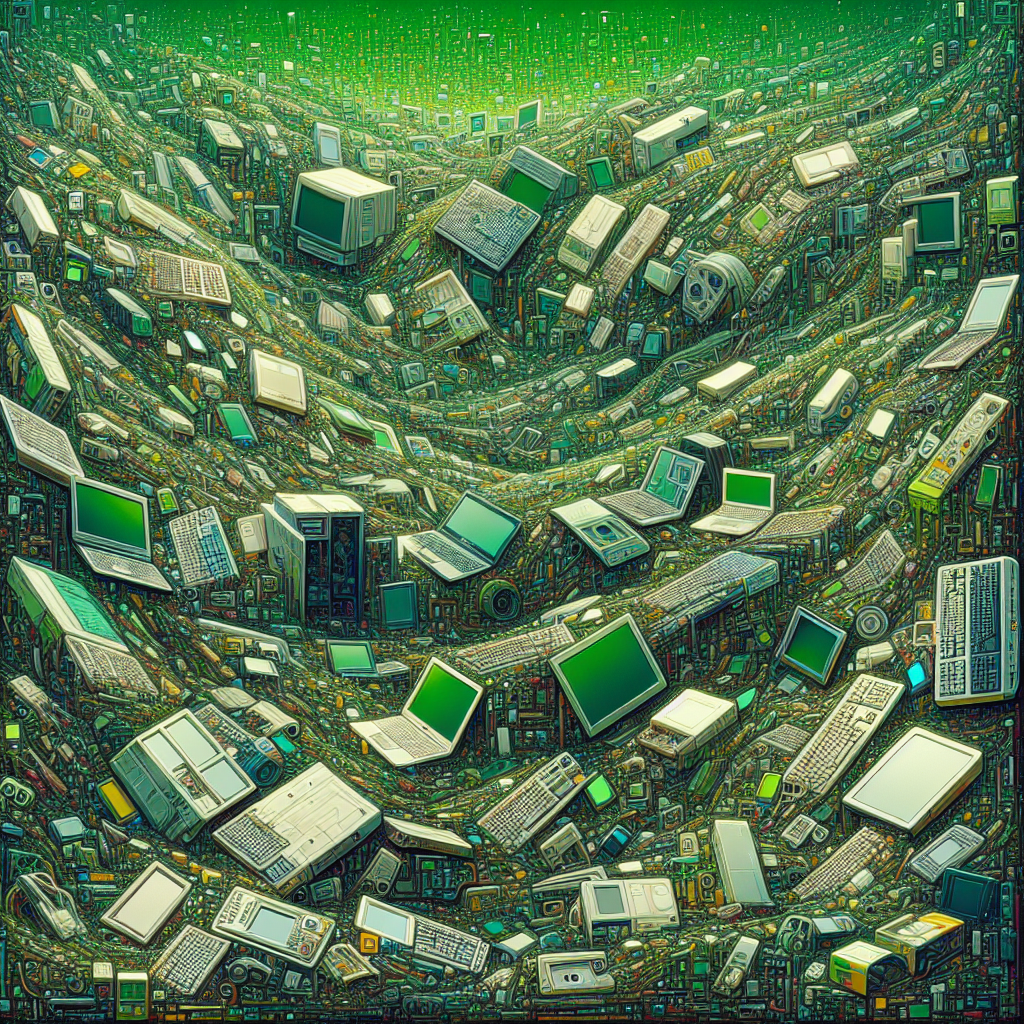Blog Ecobraz Eigre

Electronic waste: the oil of the 21st century that COP30 needs to recognize
Electronic waste represents one of the greatest hidden assets of the 21st century. With COP30 approaching, it is crucial that environmental discussions recognize this precious resource, considering its environmental impacts and the opportunities for the circular economy and global sustainability.
What is e-waste and why call it the oil of the 21st century?
Electronic waste, also known as e-waste, includes devices such as cell phones, computers, televisions and other discarded electronics. Just like oil in the last century, it has significant economic value due to the precious metals and reusable components present in these devices. Given the growing demand for limited natural resources, e-waste has become a strategic source for recovering vital materials such as gold, copper, silver and lithium.
Environmental impacts of poorly managed e-waste
Inadequate management of e-waste represents a serious environmental problem. When disposed of incorrectly, this waste releases toxic substances such as lead, mercury and cadmium, which contaminate soil and water and harm human health. In countries where recycling is not regulated, these consequences intensify, affecting vulnerable communities and the balance of ecosystems.
COP30 and the urgency of recognizing e-waste on the global agenda
The Conference of the Parties (COP30) is a crucial opportunity for governments around the world to address the challenge of e-waste in an integrated manner. Recognizing the value and impact of e-waste can drive public policies focused on efficient recycling, incentives for the circular economy and the reduction of natural resource extraction. Including this theme strengthens global environmental commitments and promotes sustainable innovation.
Circular economy and recycling: turning e-waste into a resource
Implementing the circular economy in e-waste management means maximizing the reuse of materials and minimizing waste. Through advanced recycling processes, precious metals can be recovered in high purity, reducing the need for aggressive mining and the associated impacts. In addition, reuse extends the useful life of devices, reducing waste generation.
Challenges and solutions for sustainable e-waste management
Despite growing awareness, many challenges remain. The lack of adequate infrastructure, the informal recycling market and little public involvement hinder efficient management. International cooperation, investment in clean technologies and environmental education are key ways to overcome these barriers.
Conclusion: the importance of COP30 for a sustainable future
Electronic waste must be recognized as a vital strategic resource on the COP30 environmental agenda. By prioritizing its sustainable management, the world can move towards a greener, fairer and more innovative economy. Joint action by all sectors and countries is essential to ensure that the oil of the 21st century - e-waste - is treated with the importance it deserves.

Deixe um comentário
O seu endereço de e-mail não será publicado. Campos obrigatórios são marcados com *